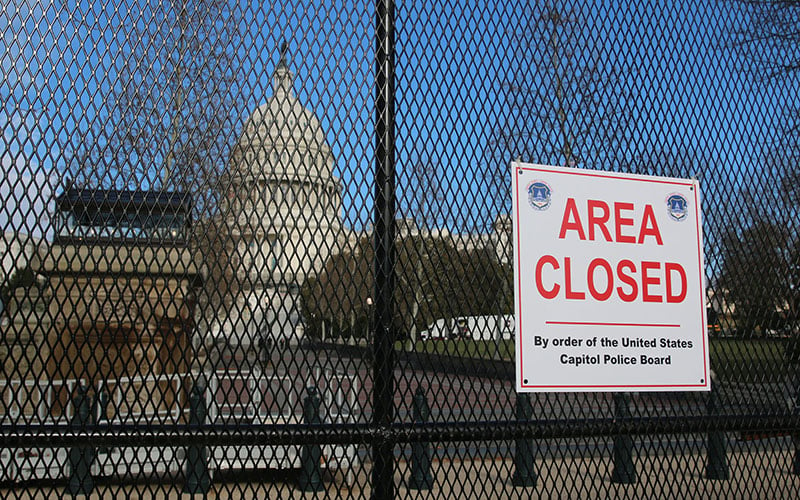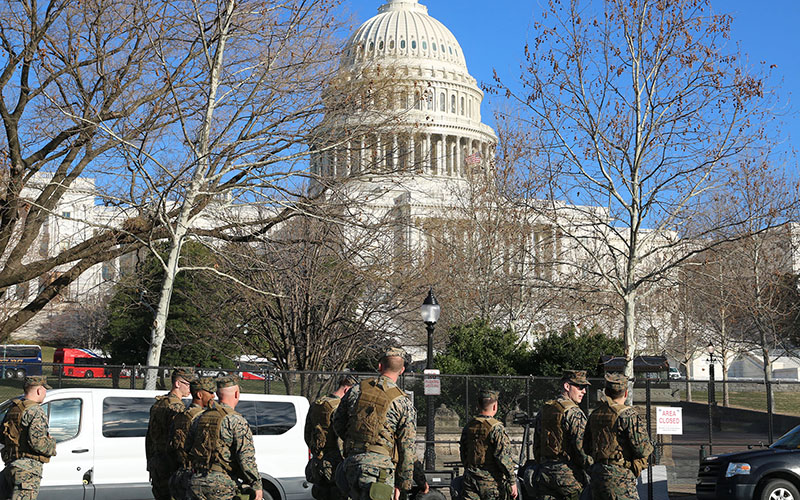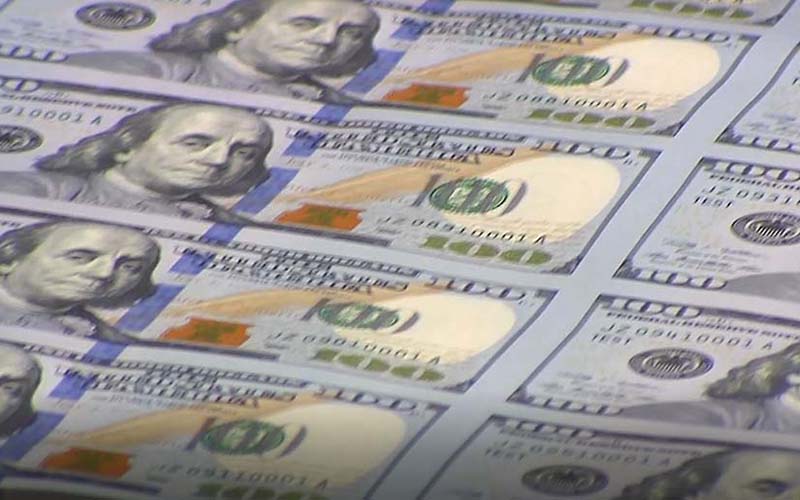WASHINGTON – President Joe Biden delivered his first State of the Union address Tuesday in a speech that toggled between plans for tackling domestic challenges and reasserting U.S. international leadership.
The hour-long address came in a Capitol that was ringed with police and security fencing reminiscent of the Jan. 6 attack, but where waning COVID-19 cases let lawmakers go maskless for the first time in two years. It also came against a backdrop of war in Ukraine and surging inflation at home that has tempered strong gains in employment and wages.
Biden acknowledged those challenges but also painted an optimistic picture of America, a nation he said was “defined by a single word: possibilities.”
“The state of the union is strong because you, the American people, are strong,” he said at the end of the address. “We are stronger than we were a year ago. And we will be stronger a year from now than we are today.”
Rep. Greg Stanton, D-Phoenix, praised what he called the “most bipartisan State of the Union we’ve seen in many, many years,” pointing to repeated standing ovations when Biden praised Ukraine and Ukrainians and attacked Russian President Vladimir Putin.
“I thought that was really a poignant and beautiful moment in the speech … (making) every person in that room stand up and make it absolutely clear that we stand with the people of Ukraine during this incredibly difficult time,” Stanton said.
“The president probably had to tear up whatever the original draft was a couple of weeks ago, and spent a lot of time discussing American support for … our fellow NATO countries,” Stanton said of the attack on Ukraine that began less than a week earlier.
But where Stanton saw bipartisanship, Arizona Republicans like Rep. Paul Gosar, R-Prescott, saw “the last gasp of a dying and desperate administration.” Rep. Debbie Lesko, R-Peoria, carrying a small Ukrainian flag like many lawmakers, some of whom wore the Ukrainian colors of blue and yellow, saw the war in Ukraine as just another issue to blame on the administration.
“The State of the Union is in crisis,” Lesko said in a statement released after the speech. “Gasoline, grocery and energy prices are soaring, crime has risen through the roof, the southern border is wide open, fentanyl is killing our kids, and war has broken out in Ukraine.”
Biden spent the first 12 minutes of his speech talking about Ukraine. He announced that the U.S. will join other countries that have closed their airspace to Russian flights, in addition to levying harsh economic sanctions against Russia, and renewed the pledge to defend NATO countries and supply Ukraine with weapons to defend itself.
But he spent the bulk of the speech talking about the economy, pledging to create millions of jobs through infrastructure upgrades and to bring jobs back to the U.S. by encouraging new domestic manufacturing. He pointed in the audience to the CEO of Intel, a major employer in Arizona, which has pledged $20 billion to build a semiconductor plant in Ohio.

Security fencing, last seen in the wake of the Jan. 6, 2021, attack on the U.S. Capitol, went up again over the weekend in preparation for possible disturbances at President Joe Biden’s first State of the Union address. (Photo by Emily Sacia/Cronkite News)
Despite the jobless rate falling to just 5.3% in 2021 and a increase in wages, Biden acknowledged that those gains were being eroded by an inflation rate that hit 7.5% last year, the highest in decades. When he said the solution is to “lower your costs, not your wages,” he drew chants of “USA, USA,” from the lawmakers.
“Make more cars and semiconductors in America. More infrastructure and innovation in America. More goods moving faster and cheaper in America. More jobs where you can earn a good living in America,” he said. “And, instead of relying on foreign supply chains – let’s make it in America.”
Not all the interruptions were in support of the president.
When he pledged to improve health care for veterans, citing the death of his son Beau, a veteran, from brain cancer, Rep. Lauren Boebert, R-Colorado, shouted “13” in an apparent reference to the 13 U.S. soldiers killed during the evacuation of Afghanistan. The Washington Post reported that it was Boebert and Rep. Marjorie Taylor Greene, R-Georgia, who tried to start a “build the wall” chant after Biden mentioned his plan for border security.
Biden – who halted construction of the Trump administration’s border wall soon after taking office – said the border needs to be secured and that his administration has installed new technology at the border and worked closely with Mexico and Guatemala to stop traffickers.
Arizona lawmakers on both sides of the aisle agreed that more needs to be done to secure the border – Rep. Andy Biggs, R-Gilbert, tweeted that he would be “glad to take” Biden to see the border crisis Biggs said the president created.
But Biden also said the immigration system needs to be improved along with border security, by adding immigration judges among other moves, and he called on Congress to pass long-stalled comprehensive immigration reform.
It was one of a laundry list of Democratic priorities that Biden called for, including voting reform, gun control measures and abortion rights guarantees. Those proposals did not fly with Republicans.
“President Biden is going to have to do more than offer empty rhetoric,” Lesko’s statement said. “It is time for him to abandon his far left agenda and work with Republicans for the sake of our nation and our allies around the world.”
Biden also proposed a slew of health care measures, including a call to improve nursing home care, lower prescription drug costs and “end cancer as we know it.”

Hundreds of National Guard troops were put on standby before President Joe Biden’s first State of the Union address Tuesday. (Photo by Emily Sacia/Cronkite News)
Stanton thanked the president for committing to lowering prescription drug prices, a sentiment that was echoed by Rep. Tom O’Halleran, D-Sedona.
O’Halleran praised the overall speech, particularly Biden’s emphasis on bringing the country together. But he said he was “disappointed” the president did not directly address issues in rural areas, like his district.
“In rural communities like Arizona’s 1st district, hardworking families feel more acutely the issues the president discussed tonight – rising prices, the need for new, good-paying jobs, and the desperate desire to bounce back from this pandemic better than before,” he said.
But O’Halleran agreed with the president’s view that the state of the union is strong “when we come together as Americans, not politicians, and put aside our differences to improve the lives of our constituents.”





